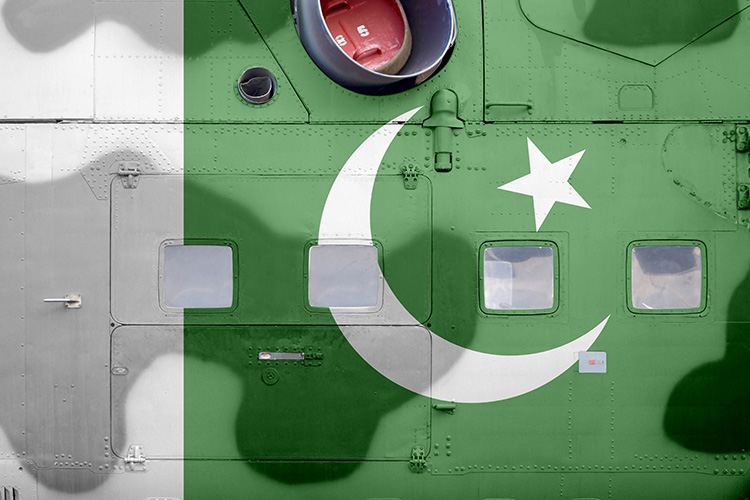Author Recent Posts Rabia Anwaar Latest posts by Rabia Anwaar (see all) US Military Equipment in Afghanistan Fueling Regional Instability – March 27, 2025 Can Trump resolve the Ukraine conflict? – March 11, 2025 Assessment of Pak-Afghan formal and informal channels of Trade – March 11, 2025
We are living in a Global village space, where actions happening at one eminent place have ramifications spread over the other parts of the world. Russo-Ukraine war is one of a kind. History speaks out loud of the agricultural ruins through wars. Likewise, Russia’s war with the Ukraine has effects that are felt in both the hemispheres of the globe. The reason is as clear as crystal that both the war mongering states, Russia and Ukraine, are considered as ‘Breadbasket’ of Europe and many Asian countries. With the eruption of war, global supply-chain of food production has disrupted and energy streaming has been stalled throughout its borders. Pakistan’s agriculture and food security is also threatened intensely by Russo-Ukraine war.
Globalization has intertwined economies of states in a cob-webbed pattern. In the recent years, the Black Sea region has become a significant producer and exporter of cereals, wheat, barley, maize, edible oils and vegetables to Europe and Asia. The ongoing conflict in this region has impacts on industrialization of markets. Domestic as well as global factors contribute to less conducive trade environment and inflationary pressures. The fallouts of this conflict are reaching the states that are dependent on it. Exports have stalled, ports are overloaded, impending harvests are in question, logistical issues arise, prices of agriculture commodities have spiked manifolds and what not.
Pakistan is the net importer of agriculture and food products from both the states. It’s agricultural imports from Russia and Ukraine include cereals, edible vegetables, organic chemicals, fertilizers, spices, tea, oil seed, oleagic fruits, grains, seed, etc. War has increased the prices of commodities due to strong merchandise demands in international market. According to Food and Agriculture (FAO) reports, inflation has risen up to 23 percent from 2022-23, with food inflation even higher. Moreover, alone wheat imports from Russia have been increased eight-folds in the fiscal year 2022-2023. Worsening the impact; the instability of international currency depreciates rupee triggering higher inflation.
The outbreak of war since February 2022, Pakistan has been facing a ‘5Fs Crisis’. These 5Fs include food, fuel, fertilizer, feed and finances. Pakistan is currently incapable to produce wheat and other foods to meet its agriculture needs at home. It is fifth most populous country in the world. Here, consumption rate is higher than the production rate. Amid many crises, Pakistan is facing acute flour crisis. Low on finances and hampered transportation of fertilizers, the crop yield is hardly up to the mark. Agriculture fields of Pakistan in South Punjab, Balochistan and internal Sindh are already succumbed due to flash flooding and hard to recover in near future. Already troubled with price hike phase of agriculture commodities- inflation and floods devastation are giving backbreaking stretch to Pakistan’s food security and economic outlook.
There is not a single doubt that food crisis in Pakistan is coming out of conflict zone in the Black Sea region however; it is now being amplified by unrecoverable loss to fields by floods, lack of knowledge and use of advanced technology in this field with old means and methods of carrying out agricultural practices in the remaining crop rich fields. The worst of facts is that agriculture has been in the list of least interested sector of government of Pakistan.
The incident of war between Russian federation and Ukraine-the two food production houses have exposed Pakistan’s vulnerability to the need of agriculture imports. Pakistan should not rely on mere two importing partners for agriculture needs till it becomes autarkic in agro-based products rather it should explore other nearby options like India. Pakistan is currently in worst economic crisis. Its foreign reserves are depleting, prices of food products are surging, people are starving and confronting malnutrition diseases especially in rural areas. It is the time of prioritizing its people and economy, not denying the importance of security issues of course. This could be an ice-breaking of strained relations between the two arch rivals and definitely a positive move for the stability of this region.
In 21st century, war is not the solution to any of the problems anymore. To quell the impacts of 5F Crisis, stability of international market is required which is why war between the two nations must put to an end. Last but not the least, Pakistan must prioritize agriculture sector, implement effective policy measures to address domestic factors contributing to hyper-inflation, protect rich crop fields and introduce advanced agriculture practices to enhance crop yield of remaining undamaged fields. Considering it a wake-up call, policy makers at the Ministry of National Food Security must devise policy plans and chart ways to make Pakistan self-sufficient in agriculture sector so that in case, the next time food supplies drop and prices surge; it could response to the emergency in time.
- US Military Equipment in Afghanistan Fueling Regional Instability - March 27, 2025
- Can Trump resolve the Ukraine conflict? - March 11, 2025
- Assessment of Pak-Afghan formal and informal channels of Trade - March 11, 2025












Leave a Comment
Your email address will not be published. Required fields are marked with *